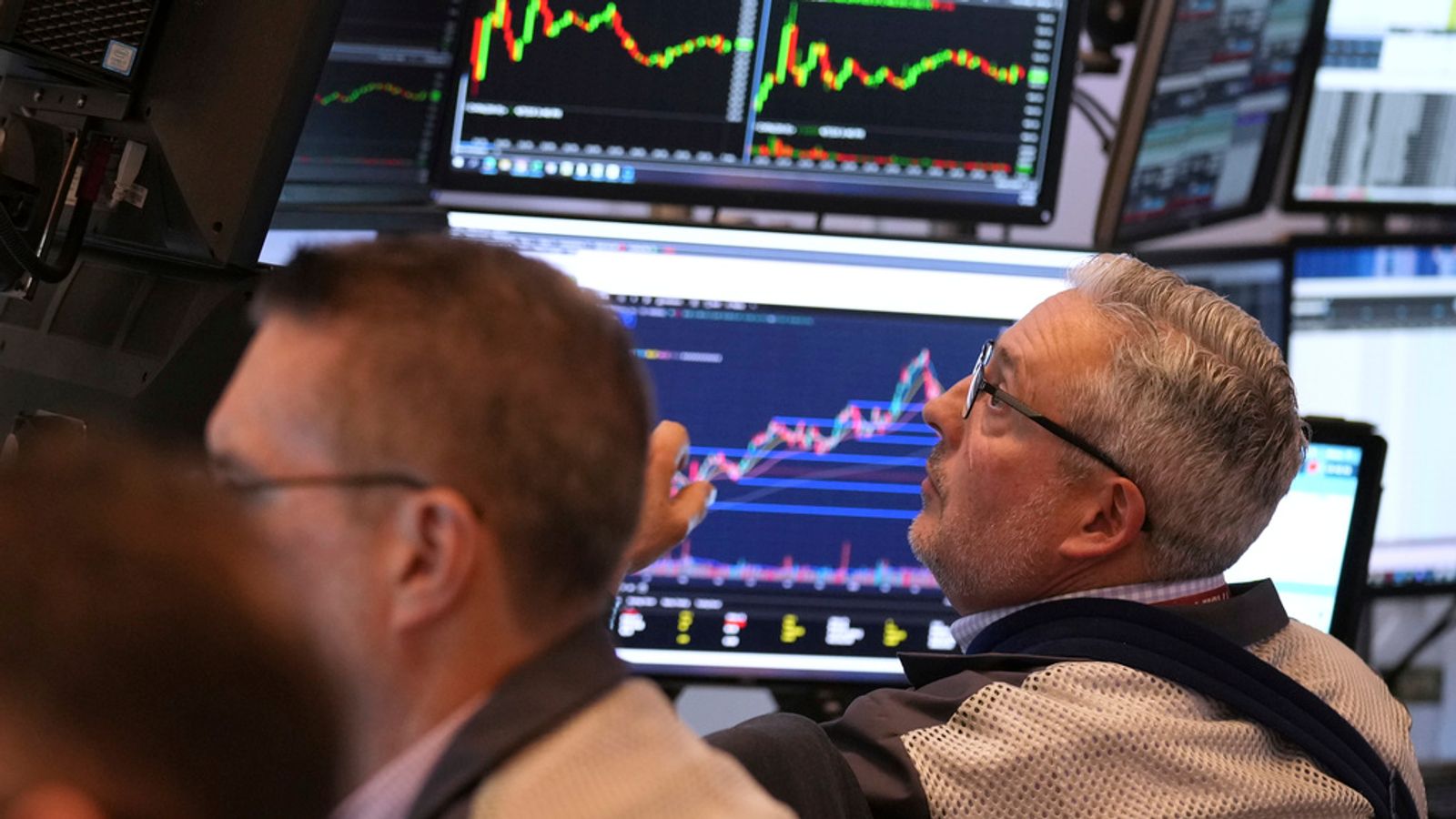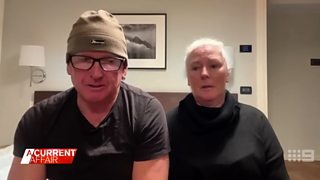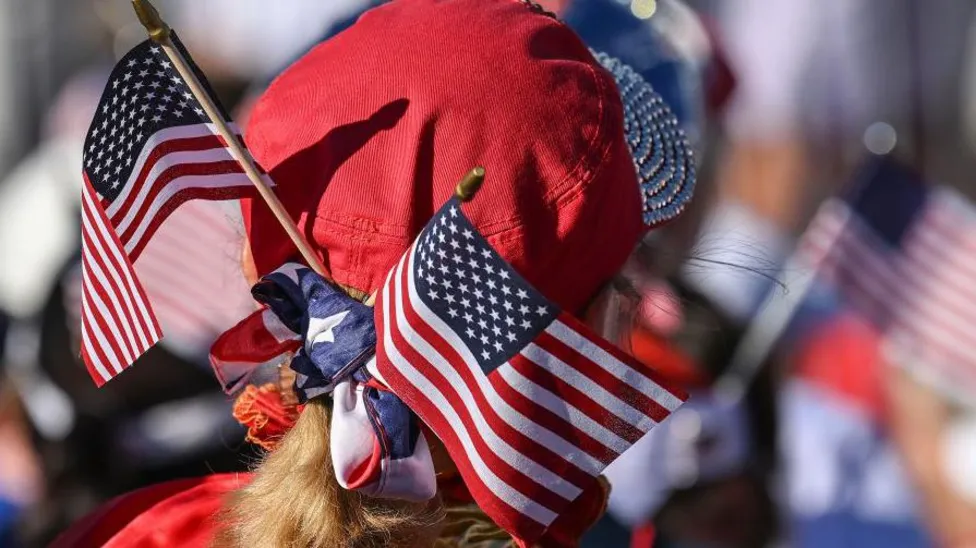Donald Trump has finally blinked - but it's not the stock markets that have forced him to act
Chalk this one up to the bond vigilantes.

This is the term used periodically to describe investors who push back against what are perceived to be irresponsible fiscal or monetary policies by selling government bonds, in the process pushing up yields, or implied borrowing costs.
Most of the focus on markets in the wake of Donald Trump's imposition of tariffs on the rest of the world has, in the last week, been about the calamitous stock market reaction.
This was previously something that was assumed to have been taken seriously by Mr Trump.
During his first term in the White House, the president took the strength of US equities - in particular the S&P 500 - as being a barometer of the success, or otherwise, of his administration.
He had, over the last week, brushed off the sour equity market reaction to his tariffs as being akin to "medicine" that had to be taken to rectify what he perceived as harmful trade imbalances around the world.
But, as ever, it is the bond markets that have forced Mr Trump to blink - and, make no mistake, blink is what he has done.
To begin with, following the imposition of his tariffs - which were justified by some cockamamie mathematics and a spurious equation complete with Greek characters - bond prices rose as equities sold off.
That was not unusual: big sell-offs in equities, such as those seen in 1987 and in 2008, tend to be accompanied by rallies in bonds.
However, this week has seen something altogether different, with equities continuing to crater and US government bonds following suit.
At the beginning of the week yields on 10-year US Treasury bonds, traditionally seen as the safest of safe haven investments, were at 4.00%.
By early yesterday, they had risen to 4.51%, a huge jump by the standards of most investors. This is important.
The 10-year yield helps determine the interest rate on a whole clutch of financial products important to ordinary Americans, including mortgages, car loans and credit card borrowing.
By pushing up the yield on such a security, the bond investors were doing their stuff. It is not over-egging things to say that this was something akin to what Liz Truss and Kwasi Kwarteng experienced when the latter unveiled his mini-budget in October 2022.
And, as with the aftermath to that event, the violent reaction in bonds was caused by forced selling.
Now part of the selling appears to have been down to investors concluding, probably rightly, that Mr Trump's tariffs would inject a big dose of inflation into the US economy - and inflation is the enemy of all bond investors.
Part of it appears to be due to the fact the US Treasury had on Tuesday suffered the weakest demand in nearly 18 months for $58bn worth of three-year bonds that it was trying to sell.
But in this particular case, the selling appears to have been primarily due to investors, chiefly hedge funds, unwinding what are known as 'basis trades' - in simple terms a strategy used to profit from the difference between a bond priced at, say, $100 and a futures contract for that same bond priced at, say, $105.
In ordinary circumstances, a hedge fund might buy the bond at $100 and sell the futures contract at $105 and make a profit when the two prices converge, in what is normally a relatively risk-free trade.
So risk-free, in fact, that hedge funds will 'leverage' - or borrow heavily - themselves to maximise potential returns.
The sudden and violent fall in US Treasuries this week reflected the fact that hedge funds were having to close those trades by selling Treasuries.
Confronted by a potential hike in borrowing costs for millions of American homeowners, consumers and businesses, the White House has decided to rein back its tariffs, rightly so.
It was immediately rewarded by a spectacular rally in equity markets - the Nasdaq enjoyed its second-best-ever day, and its best since 2001, while the S&P 500 enjoyed its third-best session since World War Two - and by a rally in US Treasuries.
The influential Wall Street investment bank Goldman Sachs immediately trimmed its forecast of the probability of a US recession this year from 65% to 45%.
Sky graphic showing the Nasdaq composite across the past fortnight
Of course, Mr Trump will not admit he has blinked, claiming last night some investors had got "a little bit yippy, a little bit afraid".
And it is perfectly possible that markets face more volatile days ahead: the spectre of Mr Trump's tariffs being reinstated 90 days from now still looms and a full-blown trade war between the US and China is now raging.
But Mr Trump has blinked. The bond vigilantes have brought him to heel. This president, who by his aggressive use of emergency executive powers had appeared to be more powerful than any of his predecessors, will never seem quite so powerful again.
-SKY NEWS







